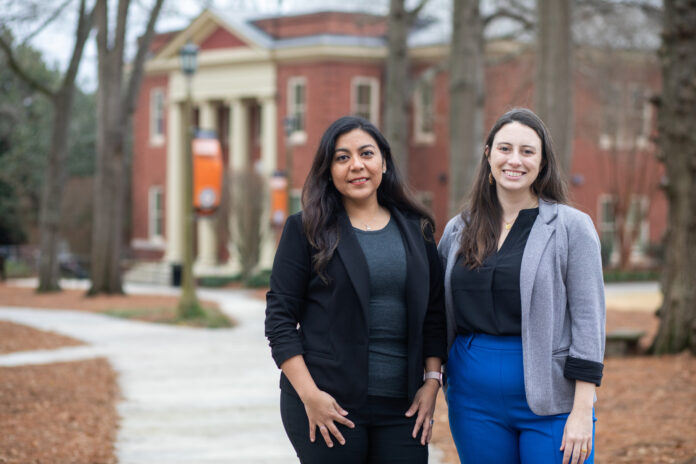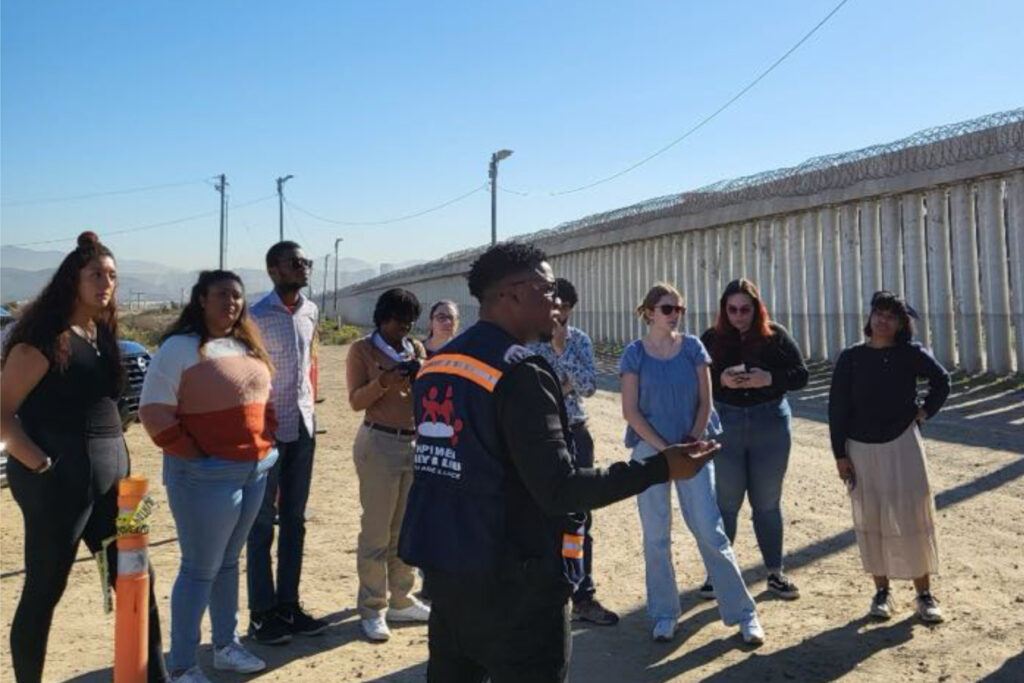
Starting in Spring 2025, Mercer University students will have the opportunity to take new advanced French and Spanish courses that focus on the immigrant and refugee experience.
Students in these classes will learn about the lives and identities of refugees and immigrants and the diversity in Georgia created in part by recent waves of immigration from Francophone and Hispanic countries. They also will conduct oral histories in local Haitian and Hispanic communities, hearing firsthand what it’s like to be an immigrant or refugee in America.
The courses will strengthen students’ French and Spanish skills and prepare them for future careers.
“Students are wanting to work with refugee and immigrant populations,” said Dr. Katherine Roseau, assistant professor of French. “I think what we’re doing is tapping into how students want to use their language with their careers. And we want to give them the opportunity to do that at Mercer.”
The courses — FRE/SPN 385: Special Topics: Immigration and Oral Histories — are being developed as part of a $150,000 grant from the National Endowment for the Humanities’ Humanities Initiatives at Colleges and Universities program. Dr. Roseau and Libertad Aranza, Spanish lecturer, are co-directing the grant project.
Dr. Roseau and Aranza, with help from Vice Provost of Engaged Learning Dr. Kathy Kloepper, will offer faculty development workshops as part of the grant. These will include training from Dr. Alana Alvarez, associate professor of Spanish, on how to incorporate oral history projects in their courses. Faculty also will receive education on refugees and immigrants in the U.S.
Other upcoming activities include a refugee and immigrant film series, a celebration for National Immigrants Day, and a two-day humanities symposium on refugee and immigrant studies.
Dr. Roseau and Aranza already have begun incorporating the refugee and immigrant experiences in their teaching. In fall 2023, they took students from their upper-level classes to San Diego, California, to participate in service-learning activities at the border.

In spring 2023, Dr. Roseau’s studies in Francophone cultures class researched the Haitian diaspora in Georgia to help the State Department engage with people from Haiti in the United States. This included interviewing members of the Haitian community, and the grant will allow this work to continue.
Collecting oral histories will allow students to practice their language and teach them to “be sensitive to other people’s experiences and perhaps value their life and all the advantages they have here in the U.S. and the status that they have compared to the people that they’re going to be interviewing,” Aranza said.
The oral histories will be included in two new textbooks — one in French and one in Spanish — and a website that students will develop. The textbooks will be freely shared as an open educational resource.
Students will come away from the new courses “with practical experience, improved language skills and a new perspective on these populations that don’t live so far away,” Dr. Roseau said.









